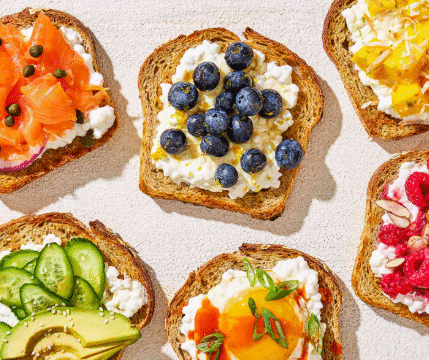Recovering from an illness can take a toll on your body in many ways, and one of the most important areas to focus on during recovery is your gut health. The gut plays a crucial role in digestion, immunity, and overall well-being. Illnesses, especially those involving infections, antibiotics, or gastrointestinal issues, can disrupt the delicate balance of beneficial bacteria in your digestive system. Rebuilding gut health after illness requires intentional nourishment with foods that support the growth of good bacteria and restore the gut lining. Here is a guide to some of the best foods to help you recover and strengthen your gut naturally.
One of the first steps in restoring gut health is to incorporate fermented foods. Fermented foods are rich in probiotics, which are live beneficial bacteria that help repopulate your gut microbiome. Examples include yogurt, kefir, sauerkraut, kimchi, miso, and tempeh. These foods contain strains of bacteria such as Lactobacillus and Bifidobacterium that support digestion and immune function. Eating fermented foods regularly can help restore microbial diversity and improve gut barrier function. When choosing fermented products, opt for those that are minimally processed and free of added sugars or preservatives to maximize their gut-healing benefits.
Alongside fermented foods, prebiotic foods are essential for rebuilding gut health. Prebiotics are non-digestible fibers that serve as food for beneficial gut bacteria. Including prebiotic-rich foods in your diet encourages the growth and activity of good bacteria, creating a healthy environment in your digestive tract. Some of the best sources of prebiotics include garlic, onions, leeks, asparagus, bananas, Jerusalem artichokes, chicory root, and whole grains such as oats and barley. These foods help feed your microbiome, which in turn produces short-chain fatty acids that support gut lining repair and reduce inflammation.
Bone broth is another powerful food for gut recovery. It is made by simmering animal bones and connective tissues for an extended period, extracting valuable nutrients such as collagen, gelatin, amino acids, and minerals. Collagen and gelatin can help repair the mucosal lining of the intestines, which may become damaged during illness or inflammation. Bone broth is also easy to digest and soothing for the digestive tract, making it a great option when your appetite is low or your gut feels sensitive. Sipping warm bone broth or using it as a base for soups can provide nourishment and hydration simultaneously.
Adding foods rich in omega-3 fatty acids can further support gut healing. Omega-3s possess anti-inflammatory properties that help calm irritation in the digestive system and promote a balanced immune response. Fatty fish such as salmon, mackerel, sardines, and anchovies are excellent sources of omega-3s. For those following a plant-based diet, flaxseeds, chia seeds, and walnuts provide alpha-linolenic acid (ALA), a type of omega-3 fatty acid. Incorporating these foods into your meals can reduce gut inflammation and support the regeneration of healthy gut tissue.
Fiber plays a critical role in maintaining gut health by promoting regular bowel movements and feeding gut bacteria. However, after illness, it’s important to reintroduce fiber gradually, especially if your digestive system is still sensitive. Start with soluble fiber sources such as oats, apples, carrots, and sweet potatoes, which are gentler on the gut. Soluble fiber absorbs water and forms a gel-like substance that helps regulate digestion and soften stools. Over time, you can add more insoluble fiber found in whole grains, nuts, seeds, and raw vegetables to support bowel regularity and microbial diversity.
Hydration is also vital for gut recovery. Drinking enough water helps keep the digestive system moving smoothly and flushes out toxins. Herbal teas such as ginger, peppermint, and chamomile can soothe the digestive tract and reduce nausea or cramping. Avoid sugary drinks, caffeine, and alcohol as they can irritate the gut lining and hinder healing.
In addition to focusing on specific foods, it’s helpful to minimize or avoid foods that may aggravate your gut during recovery. Processed foods high in refined sugars, unhealthy fats, and additives can promote the growth of harmful bacteria and increase inflammation. Similarly, spicy foods, excessive caffeine, and alcohol should be limited until your gut feels more resilient. Paying attention to how your body responds to different foods and adjusting accordingly is key to a successful gut healing journey.
Supplementing your diet with certain nutrients can also enhance gut repair. For example, zinc is an essential mineral that supports immune function and the regeneration of gut tissue. Foods rich in zinc include pumpkin seeds, beef, lentils, and chickpeas. Vitamin A, found in carrots, sweet potatoes, and leafy greens, plays a role in maintaining the integrity of the gut lining. Vitamin D, obtained from sunlight and fortified foods or supplements, helps modulate immune responses and may protect against gut inflammation. Incorporating a variety of nutrient-dense foods ensures your body has the tools it needs to rebuild a strong digestive system.
Finally, the process of rebuilding gut health after illness requires patience and consistency. Gut bacteria populations take time to rebalance, and digestive comfort may fluctuate in the early stages. Listening to your body, eating mindfully, and maintaining a balanced diet focused on whole, nutrient-rich foods will gradually restore gut function and improve overall health. If digestive symptoms persist or worsen, it is important to consult a healthcare professional for personalized advice and support.
In summary, the best foods to rebuild gut health after illness include fermented foods, prebiotic-rich vegetables, bone broth, omega-3 fatty acid sources, and fiber-rich whole foods. Drinking plenty of water and herbal teas, minimizing processed and irritating foods, and ensuring adequate intake of key nutrients like zinc, vitamin A, and vitamin D also contribute to gut healing. By nourishing your gut thoughtfully and patiently, you can restore balance, improve digestion, and support long-term wellness.






